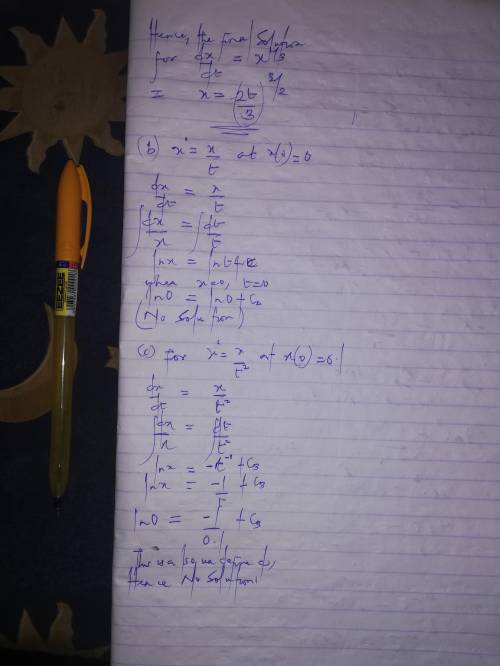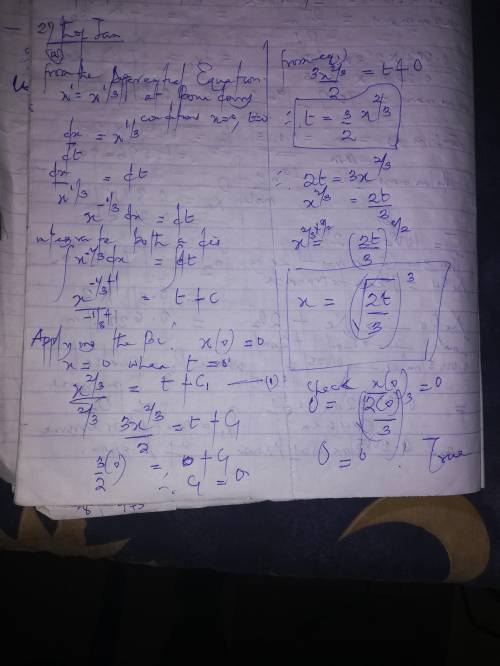
Mathematics, 25.01.2020 02:31 twirlergirl800
First-order differential equations need not have unique solutions satisfying a given initial condition.
(a) prove that there are infinitely many different solutions of the differential equations x' = x^1/3 satisfying x(0) = 0.
(b) discuss the corresponding situation that occurs for x' = x/t, x(0) = x0. (c) discuss the situation that occurs for x' = x/t^2, x(0) = 0. 1

Answers: 3


Other questions on the subject: Mathematics


Mathematics, 21.06.2019 17:30, leannamat2106
43lbs of tomatos cost $387. how much would 41lbs cost
Answers: 1


Mathematics, 21.06.2019 22:30, muziqbox594
What is the name of a polygon that has four congruent sides and theses angle measures 60,120,60,120?
Answers: 1
You know the right answer?
First-order differential equations need not have unique solutions satisfying a given initial conditi...
Questions in other subjects:

Mathematics, 08.06.2021 22:20

History, 08.06.2021 22:20

Mathematics, 08.06.2021 22:20



Mathematics, 08.06.2021 22:20




Mathematics, 08.06.2021 22:20





